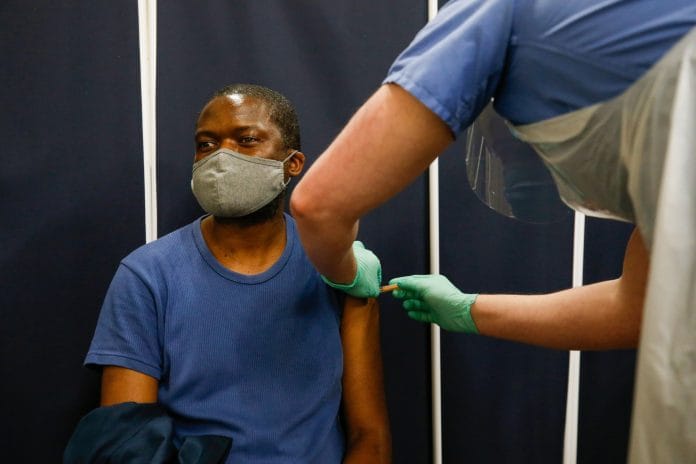New Delhi: The British government announced Friday that it has decided to shorten the window between the first and second dose of covid vaccines; and brought forward the second dose from after 12 weeks of the first dose to after eight weeks of the same. This was done to address as concerns about the spread of the B.1.617 variant of the virus that originated in India.
Announcing the decision to reduce the interval between vaccine doses, Johnson said Friday, “We have seen larger clusters of the B.1.617 variant first observed in India since last Monday. We believe this variant is more transmissible than the previous one. But we don’t know by how much. We will accelerate vaccination to those over 50 and those who are clinically vulnerable right across the country so that doses come 8 weeks after the first dose.
The National Health Service (NHS) too tweeted about the change.
“Today the government said Covid vaccine second dose appointments will be brought forward from 12 to 8 weeks. People should continue to attend appointments and don’t need to contact the NHS. Those who should move their appointment forward will be told when they are able to do so,” it stated on social media.
The move comes just a day after the Indian government decided to extend the interval between two doses of Covishield.
The government Thursday announced that the gap between two doses has been increased from between six to eight weeks, to 12-16 weeks now. “Based on available real-life evidence, particularly from the United Kingdom, the COVID-19 Working Group has agreed to increase the dosing interval between two doses of Covishield to 12-16 weeks. No change in intervals for Covaxin was recommended,” the government said in a statement Thursday.
Concerns have been mounting in UK following the increase in the number of those infected with the B.1.617 variant. The number of deaths in such cases have also gone up. Britain has a sizeable South-Asian population and the country has put in place restrictions on travel to India, to curb the spread of the virus in the country, at a time when India is battling a brutal second surge in Covid infections.
Also read: Our sinking states: Why Covid corpses in Ganga indicate India could face turbulent times
Britain battles B.1.617
While Britain has achieved one of the fastest inoculation drives in the world – almost 70 per cent of the adult population have received the first dose, while 36 per cent have received both doses – the British government said Friday that the new variant from India is posing a considerable challenge, with infections spreading fast. The Boris Johnson government decided to reduce the interval between the two doses to inoculate more people as protection against this. The gap between the two vaccine doses was brought down even though there have been growing concerns about the efficacy of existing vaccines against the B.1.617 variant.
“I believe we should trust in our vaccines to protect the public whilst monitoring the situation very closely because the race between our vaccination programme and the virus may be about to become a great deal tighter,” Johnson told the press Friday.
According to Reuters, Public Health England stated Thursday that there had been 1,313 cases in England of B.1.617 in a week, more than double the previous week’s figure, with four confirmed deaths.
However, the government said that there hadn’t been many hospitalisations arising out of the variant, which may be attributed to the population being vaccinated. Government officials also said that the B.1.617 variant from India is more transmissible, than the B.1.1.7 variant that originated in Kent and led to the second wave in UK.
The spread of the new variant may now affect the British government’s decision to lift all public restrictions from 21 June. With a large South Asian population, Britain had placed India on a red list for travels to the the country, in April. Those coming from India will have to pay to stay at government appointed hotels to quarantine for 10 days.
(Edited by Poulomi Banerjee)
Also read: Covid killed parents, 3 Bihar siblings now fight virus stigma — ‘no one even offered food’






